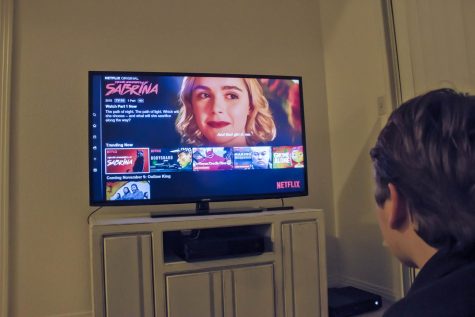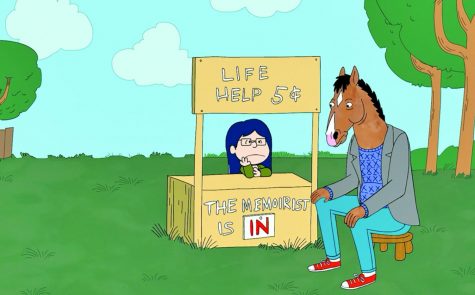Hush’ flourishes by giving complexity to a hearing impaired protagonist
I’m a lover of horror films, love them with all my heart. That being said, there’s a lot of bad ones out there, and much of that has to do with the fact that writers and directors tend to base their work off of others’ beforehand.
While homages can be effective, oftentimes the result is simply a watered-down taste of what was originally great. Because of this, coming across a horror film with even a modicum of originality makes for a wildly valuable experience. Mike Flanagan’s “Hush” is more than original, it’s an excellent and chilling take on the home invasion genre.
The premise is fairly simple. A deaf woman, Maddie, must fight off a masked man who seeks to break in and kill her. Already there’s a great sense of representation. Very rarely are disabled individuals portrayed in media, and her characterization is not only handled incredibly well, it’s also used as a central aspect of the plot and building of tension, not unlike that of “Wait Until Dark” (1967).
Maddie (Kate Siegel) was temporarily deaf as a child and then permanently after a surgery gone wrong, which again manages to portray a section of our populace that is, more often than not, overlooked in media. She lives as a novelist isolated in the woods, partially in response to her othering by society, a life choice that ultimately contributes to her victimization.
What really solidifies her presentation as being so great is the fact that she doesn’t exist to be a feel-good story for able-bodied individuals to feel empathetic towards. Far too often there are characters with disabilities who face difficulties and overcome them with a tacked on platitude that says, “See how this poor disabled person managed to succeed? What’s your excuse?”
This is something that is incredibly harmful, for able-bodied individuals and disabled peoples alike. The attitude invalidates the struggles we all face while also dehumanizing disabled people for the sake of “inspiring” others.
“Hush” manages to deftly sidestep this expectation. While there is no confusion with the limitations of Maddie’s deafness, her overcoming her attacker lacks the sentimental or romanticized tone that would make it tacky. It’s a story about a woman, who is disabled, fighting for her life. It’s brutal, it’s gory, and it’s the kind of film that never lets up, a feat which is primarily achieved by the back and forth struggle between Maddie and her assailant.
By never letting either one of them get the upper hand entirely, the film keeps things interesting and constantly engaging until the very end. It’s not “A Nightmare on Elm Street,” nor is it “Friday the 13th” or any other variety of slasher flicks where the antagonist is some superhuman that must be constantly evaded. The masked man is very much human, and in a way it adds to the terror far more than it would otherwise. It lets you know the extent of humanity in a way that is grotesque and difficult, making it much more rewarding.
If you’re a horror buff, looking for your next flick, “Hush” comes highly recommended as an original, well acted and gruesome thriller that is sure to keep you on the edge of your seat. It just goes to show you, disabled does not mean helpless.










